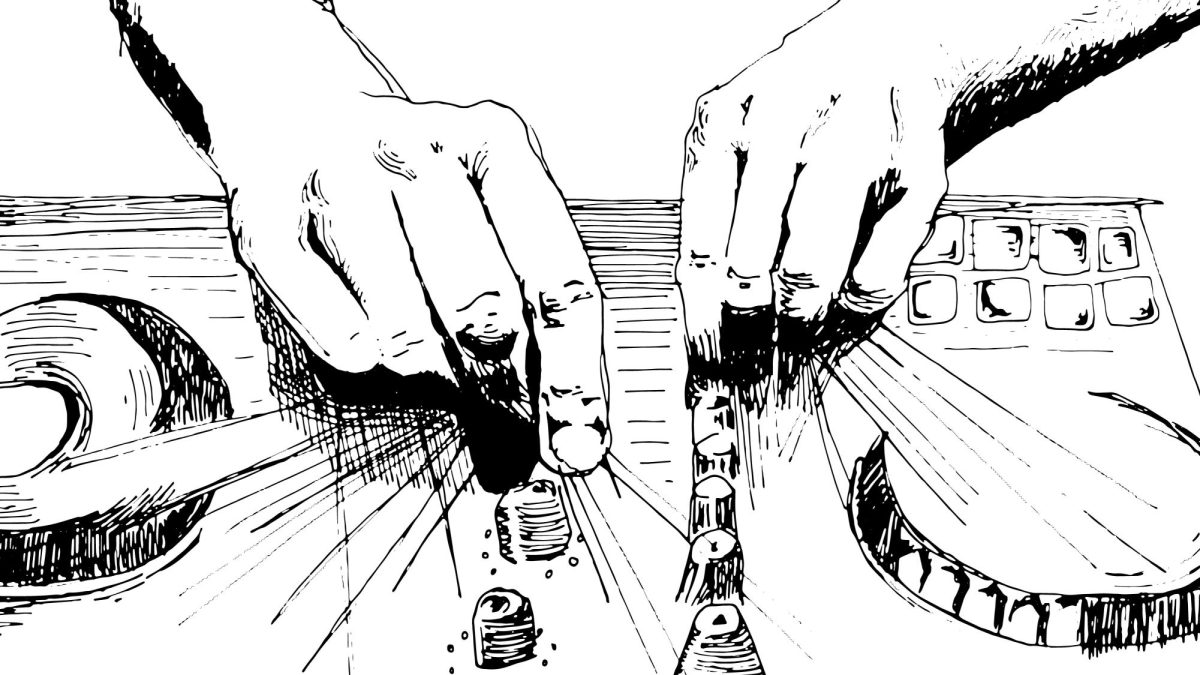With less than a month until classes end, students may be wondering how they’ll pass the time without lectures to fast-forward through and Zoom seminars to attend. If you’re one of them, you’re in luck — the College Libraries provide access to Swank, a free movie service that makes hundreds of classic titles available at the push of a button.
Every week until the end of the semester, two Record editors will each choose five movies: four old favorites and one new discovery. This week, Tali Natter ’23 highlights the drama and style of the 1950s, while Nigel Jaffe ’22 reflects on a few westerns, both classic and new.
Tali recommends: Four captivating ’50s melodramas
On the Waterfront (1954): Directed by Elia Kazan ’30, On the Waterfront is perhaps the most representative movie of the era and one of the most critically acclaimed of all time. Loosely based on real events, this crime drama stars Marlon Brando as a boxer-turner-longshoreman who “coulda been a contender.” While filled with heartbreak, murder, mobs and corruption, it is at its core about fighting for justice and finding yourself.
Some Like it Hot (1959): We can’t talk about ’50s films without a Marilyn moment! Set in prohibition-era Chicago, Monroe’s captivating charms are in peak form as Sugar “Kane” Kowalczyk, a ukulele player and singer in a traveling band. When two male musicians, played by Tony Curtis and Jack Lemmon, witness a mob murder and find themselves needing to escape from the boss, they disguise themselves as women and join the all-female band, resulting in cross-dressing chaos. This film highlights Monroe’s skills as a compelling and compassionate actress, not just a sex symbol, and is perfect for a light-hearted hilarious romance. Just don’t take it too seriously.
Rebel Without a Cause (1955): In what may be the first example of a “teen angst” movie, Rebel Without a Cause follows dreamy James Dean in his most celebrated role as troubled teen Jim Stark. He and his classmates, including Natalie Wood, feel misunderstood and neglected by the adults in their lives, driving them to violent and sometimes disturbing actions. While at times far-fetched, the phenomenal writing and uniquely superb acting make it worth a watch to witness the emotional struggles of earlier-era adolescence.
Singin’ in the Rain (1952): Singin’ in the Rain is a shining star of ’50s films, doing what the movie industry at this time did best: make fun of itself. Set in 1920s Hollywood during the transition from silent films to “talkies,” this film highlights this massive change in cinema (and its overdramatic response from industry folk) while presenting one of the sweetest film romances of all time. With all-stars Gene Kelly and Debbie Reynolds playing marvelously off each other through classic songs and advanced dances only they can pull off, it shows the power of a good old movie musical and is guaranteed to put a smile on your face. Despite Debbie Reynolds as Kathy Selden claiming about movies, “If you’ve seen them one, you’ve seen them all,” Singin’ in the Rain is a must-see.
And one I’d never seen before that you definitely should:
Vertigo (1958): Marvelously both a psychological thriller and a romantic drama, director Alfred Hitchcock masterfully crafted Vertigo to blend various genres of this era, resulting in a film that is somehow mysterious yet predictable, disturbing yet enthralling. Perhaps the most thought-provoking on this list, the star of the film is not the world-famous Jimmy Stewart but rather the edge-of-your-seat mood and layered plot following Stewart as a private investigator following a woman who appears to be possessed. I highly recommend to all, particularly spy/adventure/mystery fans looking for a one-of-a-kind classic or romance fans looking for something new.
Nigel recommends: four classic Westerns, old and new
The Ballad of Buster Scruggs (2018): In their most recent film, the Coen Brothers make the American Frontier the stage for six captivating vignettes that put on display everything that makes their work precious and unique. Settlers, cowboys and prospectors take part in surreal tales both poignant and funny as the Coens begin by toying with the Western genre before quickly demonstrating that they can contribute to it seriously as well as anyone today. Like all good works of short fiction, each vignette makes far deeper an impression than any one should have the right to, and all are startlingly original.
True Grit (1969): John Wayne’s masterful performance as the grizzled U.S. Marshal Rooster Cogburn won him his only Oscar, and he shines all the brighter opposite country-pop pretty boy Glen Campbell, whose principal contribution to the movie is the titular song. But the real star of the show is Mattie Ross (Kim Darby), the 14-year-old girl who hires Cogburn to go after the man who killed her father — and who, despite Cogburn’s protests, insists on coming along for the hunt. Armed with a sharp wit and her father’s revolver, she knows what she wants and how to get it; Cogburn’s firefights and horseback heroics prove less memorable in the end than Mattie’s verbal battles with everyone from a hapless horse trader to her father’s killer.
No Country for Old Men (2007): Another game of cat-and-mouse, this Coen Brothers adaptation of a Cormac McCarthy novel begins with Vietnam veteran Llewelyn Moss (Josh Brolin) stumbling upon $2.4 million in cash following a drug deal gone wrong in the desert. He quickly finds himself pursued by ruthless hitman Anton Chigurh (Javier Bardem), one of the most terrifying yet compelling killers of any movie I’ve seen. (Case in point: His weapon of choice is a cattle stunner, fueled by a cylinder of compressed air.) Tommy Lee Jones rounds out the central triad as aging sheriff Ed Tom Bell, who attempts to protect Moss while himself tailing Chigurh in a story that falls somewhere on the line between a thriller and a character study.
Hell or High Water (2016): A divorced father (Chris Pine) enlists his hotheaded ex-con brother (Ben Foster) to help keep the family ranch from being foreclosed; tearing across the dusty plains in a series of burner cars, they raise the money by robbing branches of the very bank that holds the mortgage. Hot on their trail are a pair of Texas Rangers led by Marcus Hamilton (Jeff Bridges), who is staring retirement in the face yet wriggles away from sympathy with incessant remarks about his partner’s American Indian and Mexican heritage. As Hamilton reflects bitterly on his growing obsolescence, a haunting commentary emerges on the stranglehold put on the landscape by the institutions the lawmen are sworn to defend. Either everyone in Hell or High Water is the hero, or no one is.
And one I hadn’t seen before, which you should consider checking out:
True Grit (2010): Surprise! Jeff Bridges returns to fill John Wayne’s shoes in the Coen Brothers’ (yes, them again) excellent remake of the 1969 classic, which places Matt Damon in Campbell’s role and stars Hailee Steinfeld as Mattie Ross. Unlike most of their films, the Coens play True Grit as a straight-laced genre exercise, with obvious respect for the original. Bridges doesn’t try to imitate Wayne; reviving some of the indolence of his signature performance as The Dude, he makes a more convincing alcoholic than Wayne, and portrays Cogburn as less polished but with no shortage of bravado. And Steinfeld’s Mattie, made more obviously the center of the film by a flash-forward at the end, is as steely and precocious as ever.







